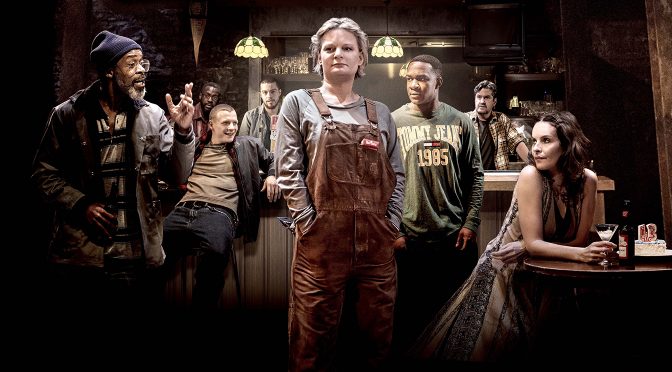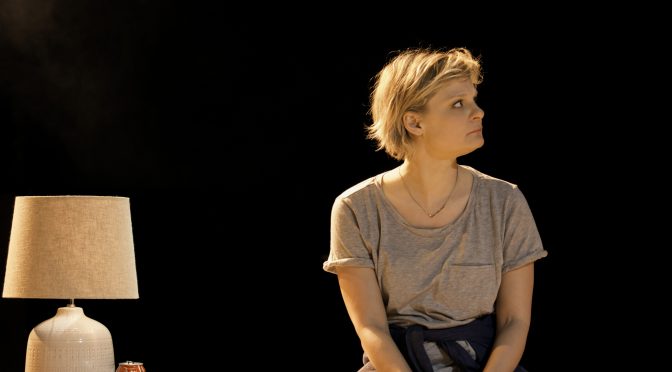After rave reviews and a sell-out run at the Donmar Warehouse, the transfer of Lynn Nottage’s play is especially welcome. A political play about blue-collar America and trade unionism isn’t your average West End fare. Brilliant performances and excellent direction count for many stars awarded by the critics. But, above all, it’s the marvellous work from an exceptional writer that makes this one of the best plays I’ve seen in an age. Oh, and it won a Pulitzer Prize.
At the heart of Sweat’s success are a series of characters that we come to know so intimately. As a trio of work friends whose jobs in a steel factory and threatened and then lost, Jessie, Cynthia and Tracey make for wonderful studies that Leanne Best, Clare Perkins and Martha Plimpton all excel in. Their history established with speed, when Cynthia moves from shop floor to office door we get a moving moral dilemma brimming with conflict.
The action takes place in the women’s local bar, and the manager’s bar-room philosophy and news commentary, skilfully delivered by Stuart McQuarrie, add to the sense of a whole community, maybe the whole US. The complex picture is created with such a natural touch it seems effortless on Nottage’s part – and appreciated by director Lynette Linton – but what technique!
Let’s not be naïve. Focus on the women in the factory and ethnic minorities working in the bar could feel tokenistic. Here, it’s what it is – real life. And the characters are all the more remarkable when we come to consider how functional each role is. Each represents a response to or facet of economic meltdown. NAFTA, the rise of nationalism and anti-immigration rhetoric, even self-medication and the opioid epidemic are all issues raised. And, handled with such humanity, Nottage makes them personal.
If Sweat still sounds dry, exceptional plotting makes the delivery anything but. There’s a thrilling mystery here surrounding two of the women’s sons, Jason and Chris, and a crime that occurs. Beginning with their release from prison we’re left guessing what happened, even who the victim was. With yet more tremendous performances, from Patrick Gibson and Osy Ikhile, we see a once close friendship and the disturbed characters both men have become. During the second act, Linton ratchets up the tension: who does what to whom is unexpected, the cruelty of events ripping a community further apart.
When racism rears its head, it is especially poignant as we see a friendship destroyed. Yet understanding how violence has escalated shows the play has important insights. As well as examining the systemic in society, Nottage takes into account an element of chance. Think of the characters, to various degrees, as unlucky and it’s sure to change any moral judgements you might make. Sweat ends as a challenging piece, preventing us from condemning any of its protagonists too quickly. It creates an uneasy sense of ‘there but for the grace of God’ time after time in a way only the very best theatre can.
Until 20 July 2019


